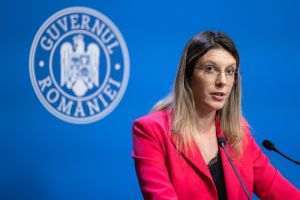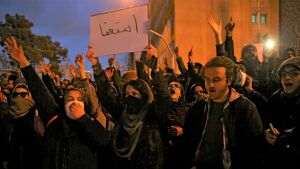In the context of the energy transition, the implementation of the Green Deal and the digitization of the economy, companies in the EU are facing an acute lack of qualified labor, said yesterday, Ursula von der Leyen, the president of the European Commission, in her State of the Union speech delivered in the Parliament European. The Head of the European Executive noted that 74% of European SMEs say they face a lack of skilled labor and that in the EU there are over 8 million young people who do not have a job, they are not trapped in any way of education and does not follow any vocational training course, being part of the so-called NEETS network.
The president of the European Commission was also dissatisfied with the unfair competition from Chinese companies compared to companies from the 27 EU member states.
"The industry and our technology companies like competition. They know that global competition is good for business and leads to the creation and protection of better jobs here in Europe. But competition is only true as long as it is fair. Too often, our companies are excluded from foreign markets or are victims of unfair practices. They are often used by competitors who benefit from huge subsidies from the state. We have not forgotten how China's unfair trade practices have affected our PV industry. Many European SMEs have been driven out of the market by their heavily state-subsidized Chinese competitors, and some European start-ups have had to go bankrupt, leading to an exodus of young entrepreneurs. (...) That's why we have to pay attention to the risks we face. Take the electric vehicle sector for example. It's a crucial clean economy industry with huge potential for Europe, but global markets are now flooded with cheaper Chinese electric cars, whose price is kept artificially low by huge state subsidies. This distorts our market. And as we do not accept this from the inside, we do not accept this from the outside. So I'm announcing the launch of a European Commission investigation into subsidies to Chinese electric vehicle manufacturers. Europe is open to competition. We must defend ourselves against unfair practices. But it is equally vital that we keep open lines of communication and dialogue with China. Because there are also subjects where we can and must cooperate. Reduce risk, don't disengage - this will be my approach with the Chinese leadership at the EU-China Summit later this year," said Ursula von der Leyen.
• Supporting industrial sectors to continue the energy transition
After noting that more than 90% of the objectives assumed in the autumn of 2019 by the current composition of the European Commission have so far been achieved, Von der Leyen said that the rest must be completed in the next 300 days, including the objectives included in the Green Deal, but and those regarding the industrial competitiveness of the Union.
"The European industry shows every day that it is ready to boost the energy transition. In the past five years, the number of green steel plants in the EU has grown from zero to 38. We are now attracting more investment in clean hydrogen than the US and China combined. And tomorrow I will be in Denmark with Prime Minister Mette Frederiksen to see that innovation first hand. We will mark the launch of the first container ship powered by clean methanol produced with solar energy. This is the strength of Europe's response to climate change. The European Green Deal provides the necessary framework, incentives and investment - but it is the people, the inventors, the engineers who develop the solutions. We will continue to support European industry throughout this transition. (...)We have to finish this work. And with that, we need to develop an approach for each industrial ecosystem. (...) The main aim will be to support each sector in building its business model for the decarbonisation of the industry. Our wind industry faces a unique combination of challenges, which is why we will deliver a European wind energy package - working closely with industry and Member States. From wind to steel, from batteries to electric vehicles, our ambition is clear: the future of our clean technology industry must be made in Europe," said Ursula von der Leyen.
• Ursula von der Leyen calls for Romania and Bulgaria to be admitted to the Schengen area
Regarding EU enlargement, Ursula von der Leyen stated that the accession process must be intensifiedof Ukraine and Moldova to the Union, as well as the states of the Western Balkans, and these states must be supported on the way to fulfilling the community acquis, dreaming of a community bloc with over 30 member states.
The President of the European Commission also referred to the expansion of the Schengen area and reiterated his support for the reception of Romania and Bulgaria in this area.
"I want to thank Bulgaria and Romania in particular for showing the way forward with good practices in asylum and return. Bulgaria and Romania are part of our Schengen area, they proved it. Let's finally allow them to enter the Schengen area, without any further delays", stated von der Leyen, after the subject was brought up for debate by Dacian Cioloş (REPER/Renew Europe), in the short intervention he gave had it from the rostrum of the European Parliament.
On artificial intelligence, von der Leyen said AI will improve healthcare, boost productivity and help fight climate change. The Commission's number one priority is to ensure that AI develops in a human-centred, transparent and accountable way, it added, also calling for an IPCC-like international expert panel on climate change to lead the development of AI, said the head of the European Executive.
Regarding Ukraine, it announced that it will propose extending the EU's temporary protection for Ukrainians and an additional euro50 billion over four years for investment and reforms.
• Reindustrialization of the EU - priority for the political groups in the European Parliament
The leaders of the political groups in the European Parliament had some amendments to the speech given by the president Ursula von der Leyen.
Manfred Weber (EPP president) stated that "we need economic growth, jobs, decent incomes, prosperity, a strong industry", but also that a European Defense Union is needed.
The leader of European Socialists and Democrats, Iratxe García, said the EU's top priority should be reindustrialisation to achieve strategic autonomy, while promoting the green transition to stem the consequences of climate change. García called for the inclusion of gender-based violence on the EU's list of crimes and the use of frozen Russian assets to help finance the reconstruction of Ukraine. She also called on the EU to reach an agreement on the Migration Pact and stressed that "Europeans' money cannot end up in the pockets of governments that abuse citizens' fundamental rights".
Stephane Sejourne (Chairman of Renew Europe) called for the EU to focus on the re-industrialisation of Europe and stressed the need for a sustainable solution to migration issues. She criticized the "harmful" unanimity rule in the EU Council, a rule that has so far prevented our country from being admitted to Schengen, but also the sanctioning of some measures taken by the governments of Budapest and Warsaw.
Philippe Lamberts, leader of the European Greens political group, criticized "those calling for a break" in climate and environmental legislation, saying "we are not above nature (...) and whether we like it or not, there are limits for what our planet can bear and what it can offer." He said the green transition represents "the biggest economic opportunity for Europe". Lamberts called on the European Commission to address housing issues and step up its efforts against violations of the rule of law, "and not only in the case of Poland or Hungary".
The representative of the European Reformers and Conservatives, Polish Ryszard Legutko, said that the EU is no better than it was 20 years ago, given the current instability, uncertainty and high inflation. He also said that people-trafficking is thriving, the Green Deal is an expensive extravagance because the cost of the EU's common debt will be twice as high as expected, and the EU budget is in ruins.
"The Commission is moving towards oligarchy, meddling in national politics and trying to overthrow governments it doesn't like, turning the rule of law into a caricature," said the MEP from Poland.
Europe's far-right said climate change must be tackled without affecting farmers, companies or building owners, while Europe's left argued that despite lofty promises, the reality for many Europeans remains bleak, with rising living costs and falling wages. real, stating that 95 million people in the EU are currently at risk of poverty.
























































